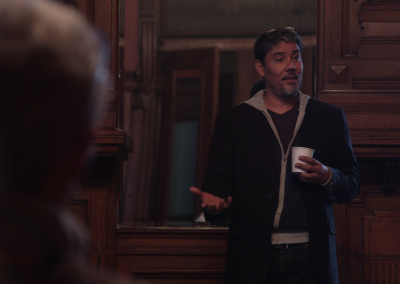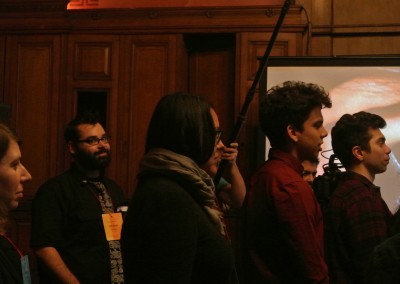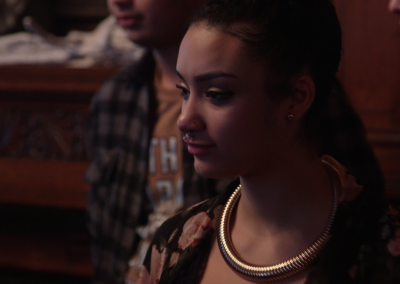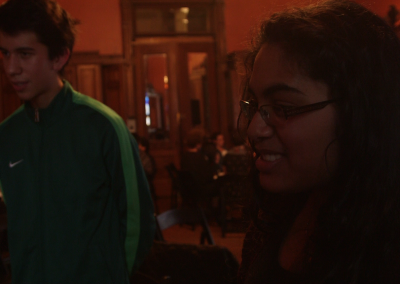The Language Gap
Experiment
Nick Kozak, Artist Educator, Manhattan Hunter Science High School — New York, NY
Paul Pfeiffer, Artist; ART21 Board of Trustees — New York, NY
The Language Gap was a student-led discussion examining the four areas out of which most miscommunications arise: Social Hierarchies, Social Norms, Accents/Dialects, and Cultural Diffusion. Four groups deliberated on each of the four areas, and teens from Nick Kozak’s classes at Manhattan Hunter High School led the conversations within each group. Investigating the gap between linguistic social hierarchies demonstrated the division between student leaders and adult participants, both attempting to be heard and understood.
“The Language Gap was born out of a very literal ‘gap’ between myself and Paul Pfeiffer. Through a series of discussions that occurred digitally from opposite sides of the planet (me in New York, Paul in Manila), the two of us found a common interest in how communication skills are formed.
For Paul, it was seen in work he had done at schools in the Philippines, specifically surrounding a class called Speech Choir, which was related to the rote memorization of English texts. And for me, I encounter communication issues every day in my teaching practice at a local NYC high school. This is, as I’ve often said, where social norms get ‘poured into concrete,’ and the world becomes much more finite.
Paul and I spent a day chatting with the students about their own experiences with miscommunication and language, and we came up with four topics: Social Hierarchies, Social Norms, Accents/Dialects, and Cultural Diffusion. Both the artist and the teens agreed that most miscommunications have origins in these four areas. The discussions that day often brought up questions that we couldn’t always answer but that we could always relate our life experience to. There was the juxtaposition of connecting with something but not necessarily understanding the workings of it – and that became the makings of our workshop for Creative Chemistries.
What followed was a small piece of awesome. We broke up the room into four groups and the teens each selected one of the topics and worked to facilitate and balance a group conversation with the adults in attendance. There were about three adults for every student, and the conversations we had were the result of each participant’s own experience and personal history.
In our debrief, students remarked with alarming frequency ‘when adults talk, they seem like they do it with purpose, as if they’re out to prove something.’ For a few teens, this caught them off guard, but for most they said it was all too common. Their parents, teachers, or any other adults they had spoken to seemed to have an agenda. And ultimately, I think the process of unearthing those agendas helps break down the social structures that seem to divide us – it put all our cards on the table. I wasn’t necessarily left with an answer as to how these kinds if language gaps are formed, but I was certainly left with new life experience to draw from, as did the students, as did the participants.
There’s a lot of hot noise about social justice these days, and how to infuse one’s practice with it. But in the end, I would say real justice is simply providing opportunities for marginalized people to have a voice when it comes to political discourse – to share the mic when sharing perspectives. This happens when I help find my students employment, when they get internships at museums, and when they’re allotted a chance to talk to adults on level ground. And for me personally, the result of putting a group of multi-cultural teens in charge of a room of multi-cultural adults couldn’t be closer to the core of what I had hoped to achieve: to unite people by defining what commonly divides them.”
— Nick Kozak
“I participated in the Creative Chemistries event mainly because it was going to test my abilities to start conversations with adults. Another thing that prompted me was the discussion topic, and how my group had to talk about social norms. Being in a room with strangers and having insightful, personal conversations was and still is so different from the icy encounters with adults in my everyday New York life. The way the event was set up so that we talked to several groups of people and not just one was also pretty good because we got to partake in discussions with different types of mentalities and convictions. There was no script to the discussion, and my friends entered the event without knowing what to say or talk about. It was all improvisation, but we knew that we had to talk about social norms and how mentalities and behavior changed as people grew older. One commonality between all the groups that we talked to as everyone explained social norms was that everyone gave anecdotes which was pretty awesome too.”
— Leo Loyola, Manhattan Hunter Science High School
“I was able to relate to my topic on social hierarchies in language mostly because I’m a teenager. When talking to my teachers, I address them as Mr. And Ms. and do not use their first names as a sign of respect. However, they do refer to me by my first name, which establishes my role as a subordinate.
The adults in the workshop related a little differently though; there were more women than men attending, so many brought up their experiences with misogynistic language, but there was also mention of race and age. Most were just there to enjoy the conversation we facilitated. However, there were a few in each group who did dominate the conversation, and shared more than they listened.
At the end I was a little disappointed that after a long talk with several groups about hierarchies created by language based on age, many of the adults still came up to us and told us that we facilitated conversation very well, and that ‘they were surprised.’ Of course sometimes they can’t control it because they’re so used to hierarchies based on age, but it did feel a little demeaning, because it seemed to imply that because of our age we don’t have the capability of creating an educated discussion.”
— Henry Prince, Manhattan Hunter Science High School
Saturday, February 21st 2015
2:45 p.m.
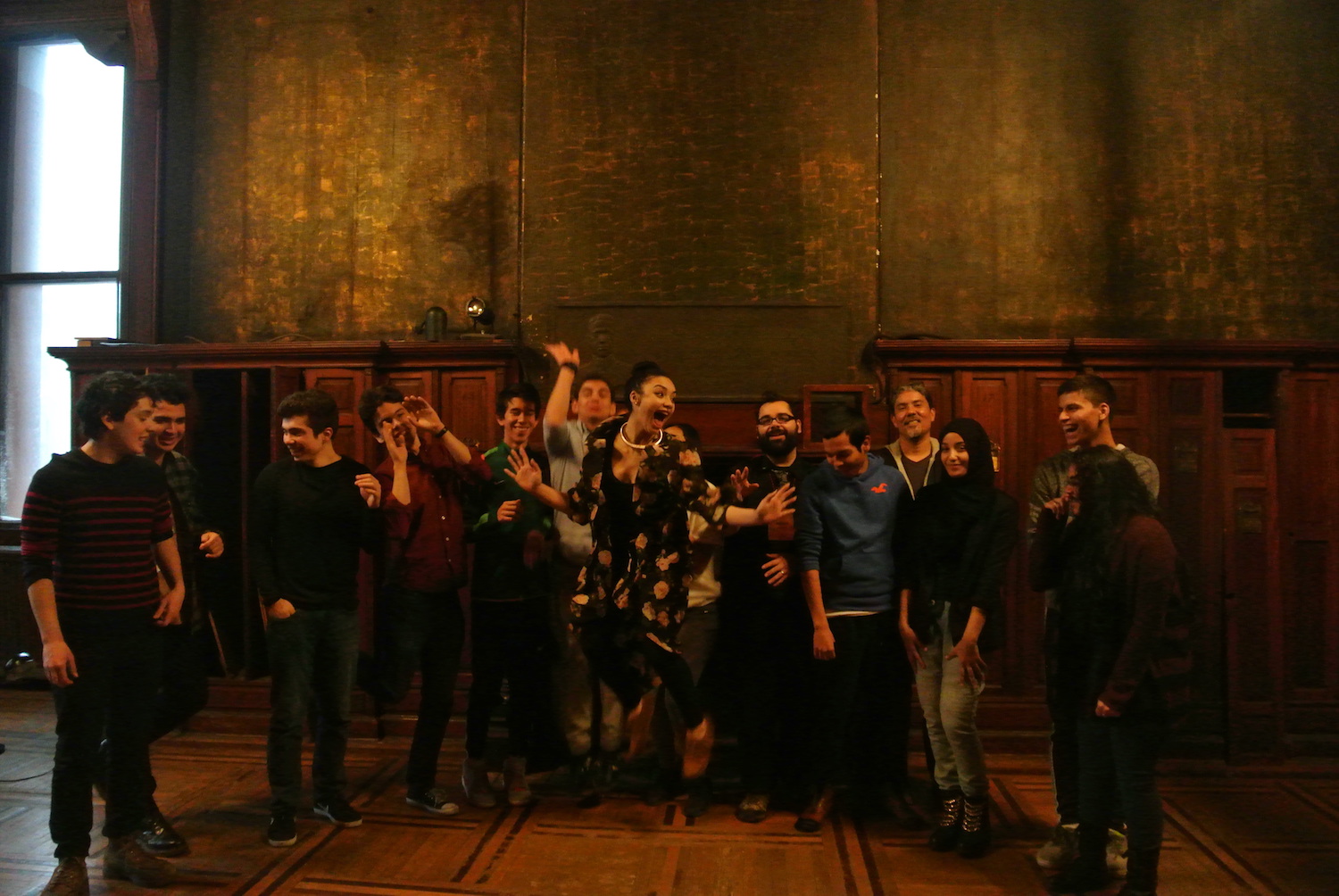
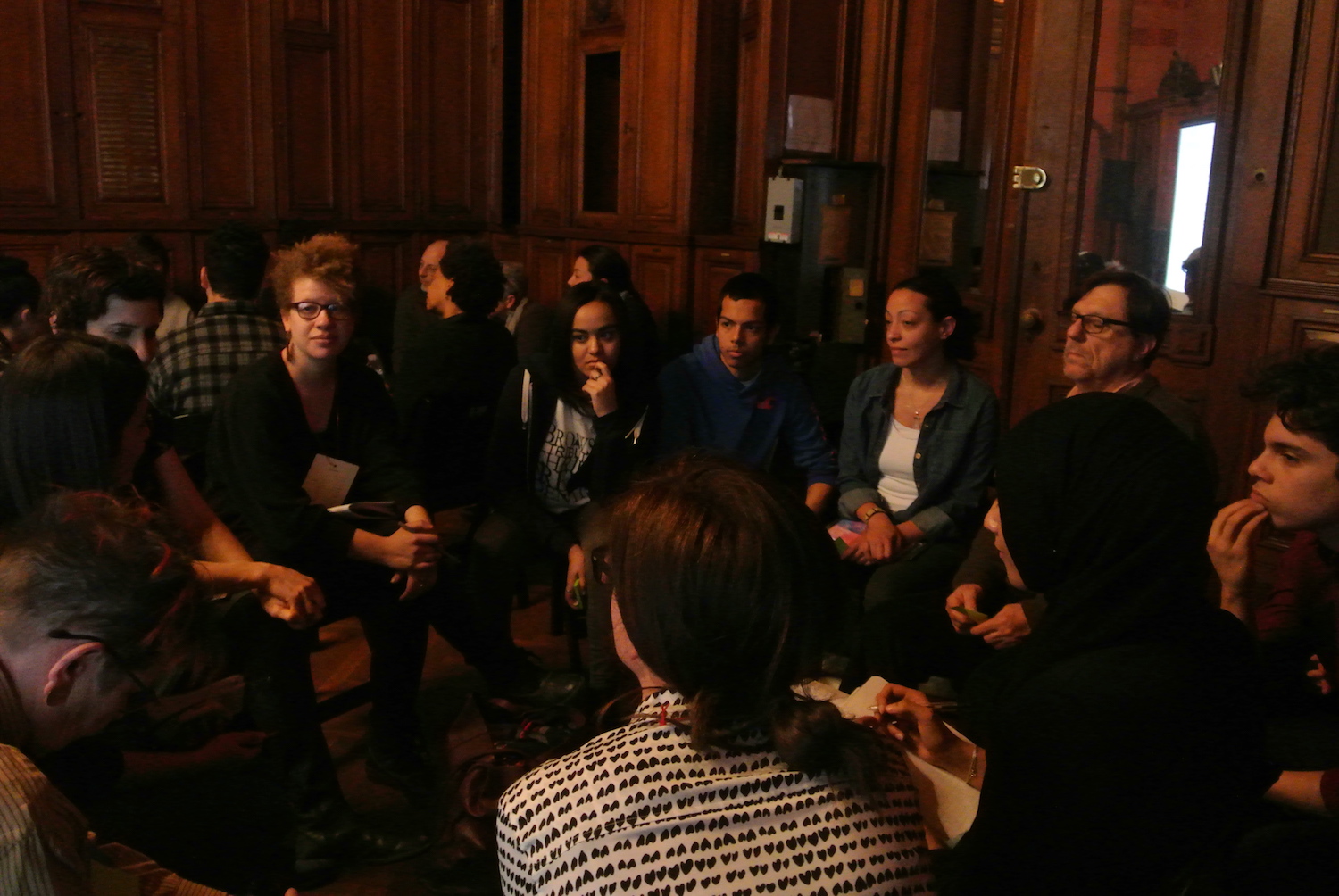
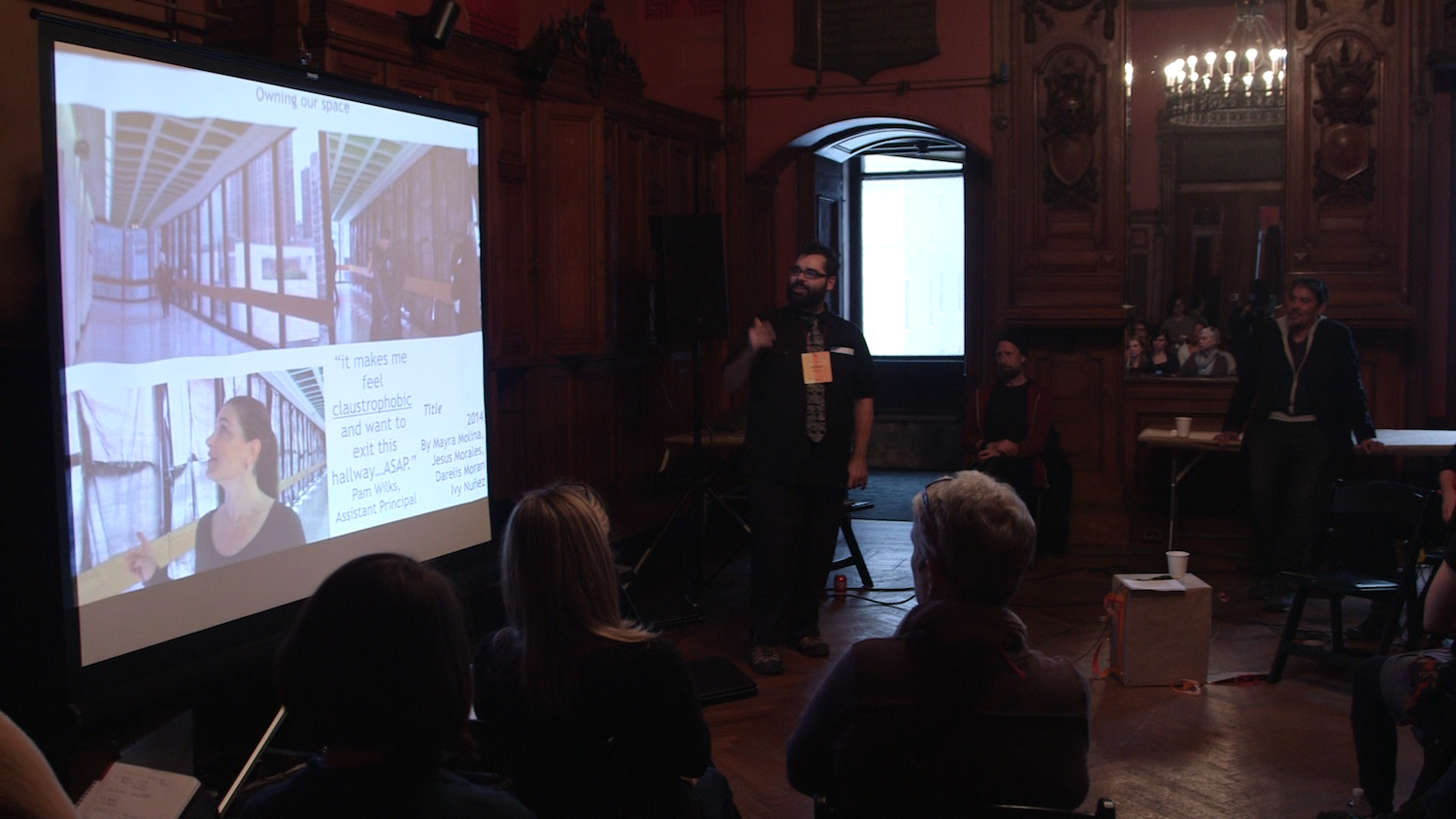
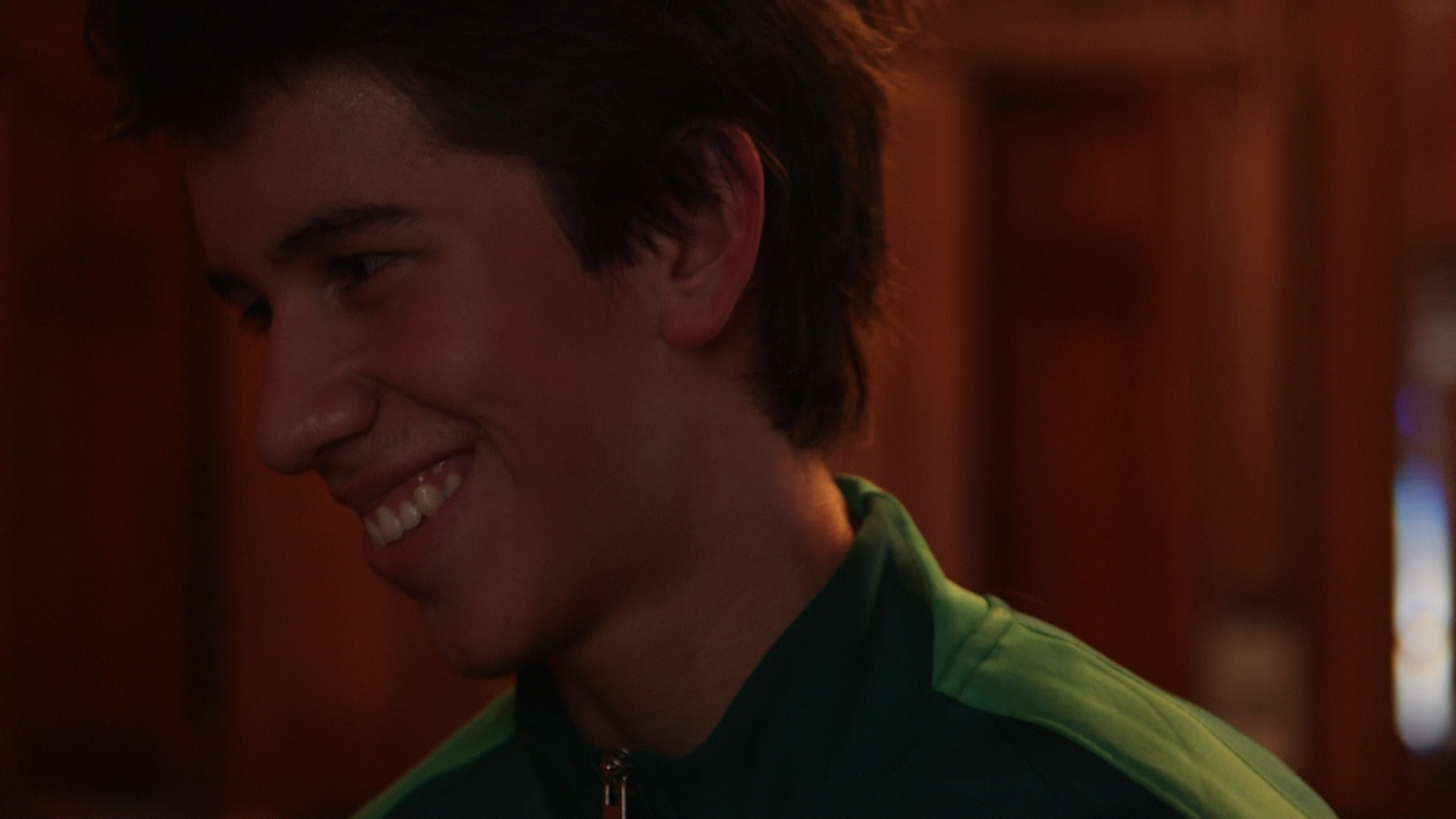
In our debrief, students remarked with alarming frequency ‘when adults talk, they seem like they do it with purpose, as if they’re out to prove something.’ …Their parents, teachers, or any other adults they had spoken to seemed to have an agenda.
And ultimately, I think the process of unearthing those agendas helps break down the social structures that seem to divide us – it put all our cards on the table.
— Nick Kozak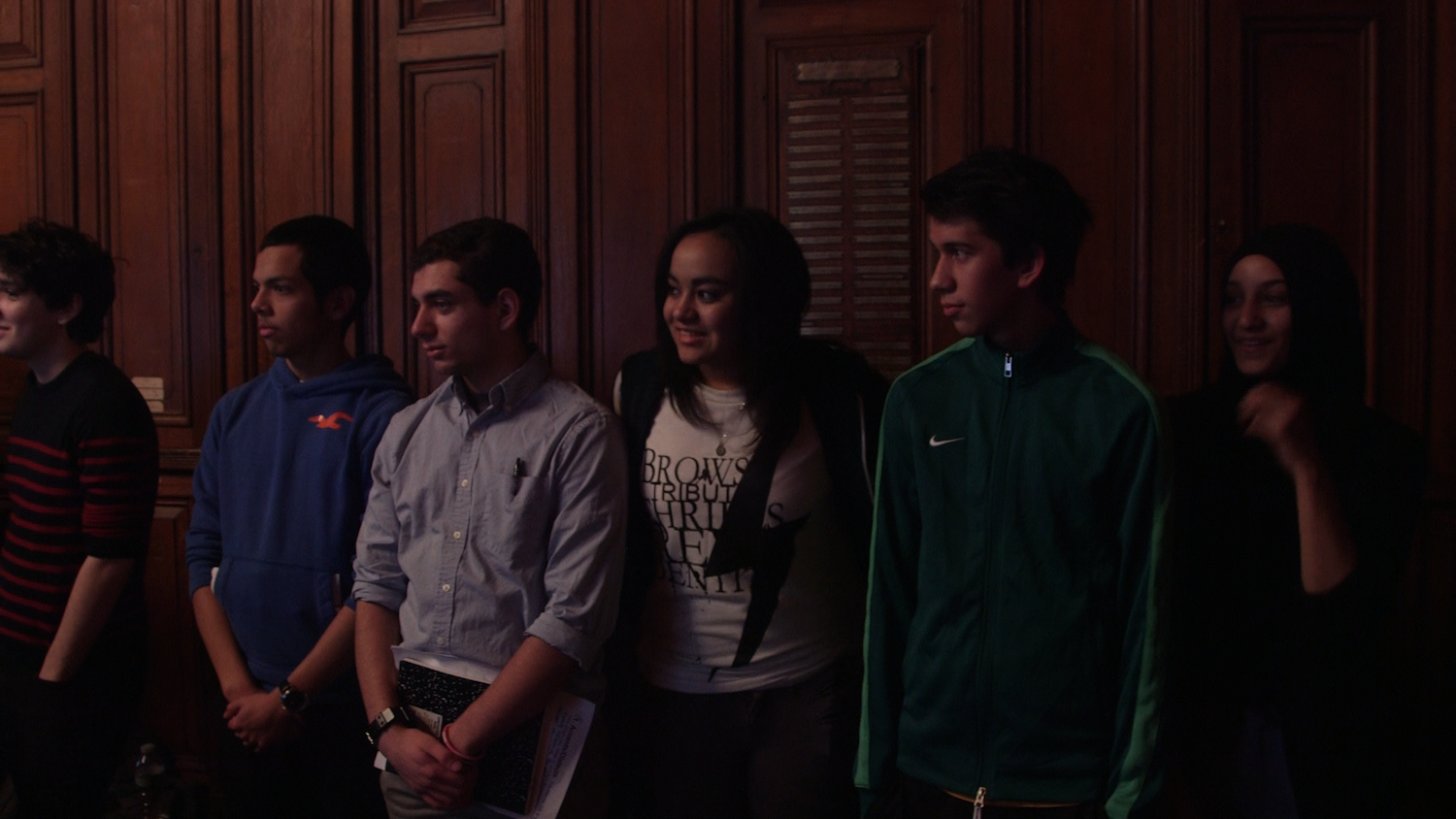
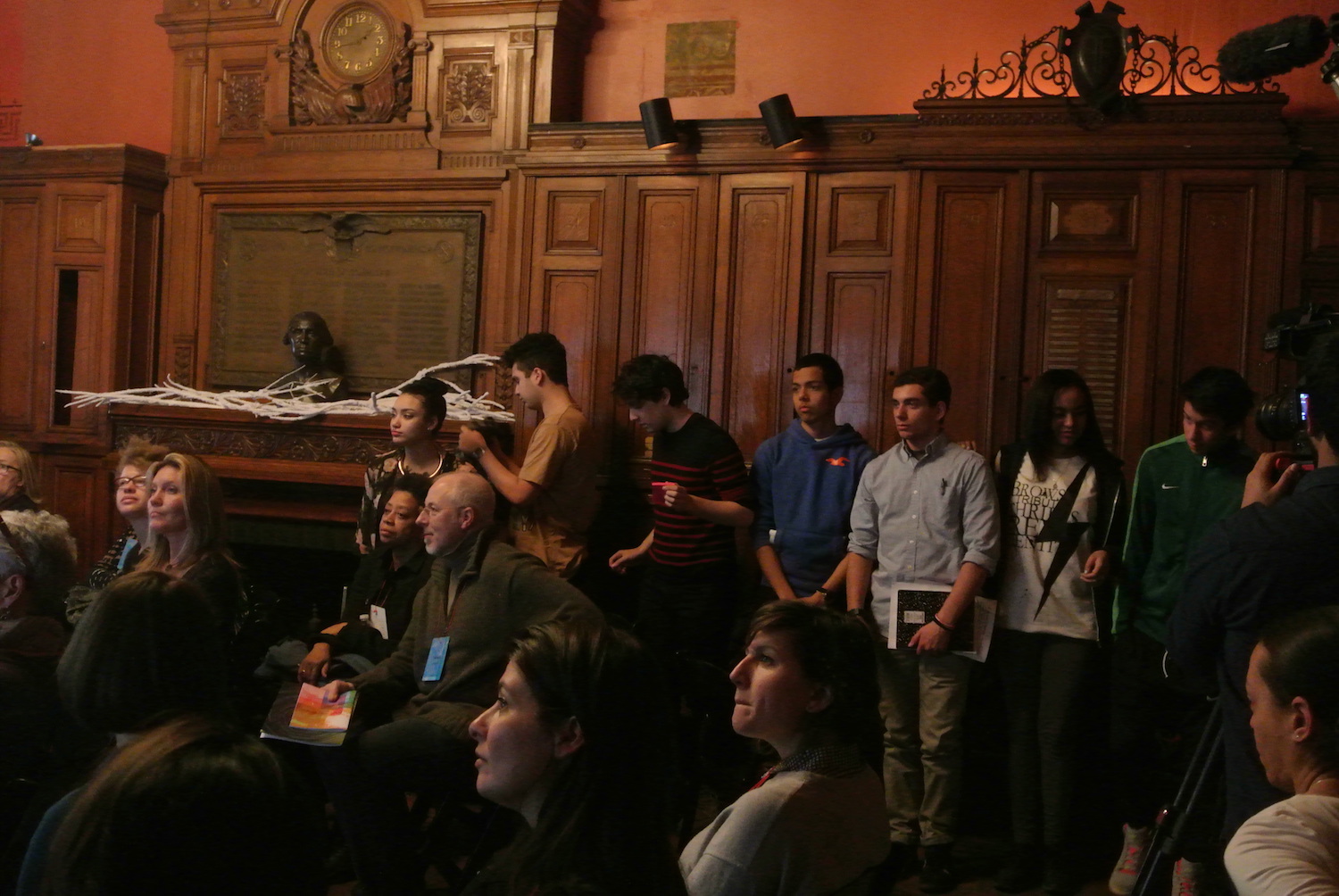
Being in a room with strangers and having insightful, personal conversations was and still is so different from the icy encounters with adults in my everyday New York life.
— Leo Loyola, Manhattan Hunter Science High School



